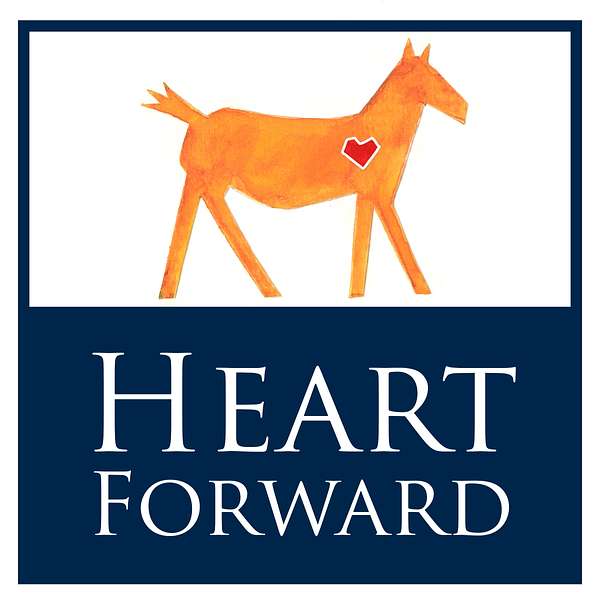
Heart Forward Conversations from the Heart
The American mental health system is broken beyond repair. Rather than trying to tweak a system which fails everyone, it is time to commit to a bold vision for a better way forward. This podcast explores the American system against the plumb line of an international best practice, recognized by the World Health Organization (WHO), in Trieste, Italy. The 40-year old Trieste model demonstrates how a community-based treatment system upholds the human rights of the people served. The Trieste story is anti-institutional and models the therapeutic value of social connection. Topics will address contemporary challenges in the American failed mental health system as contrasted with the Italian approach toward accoglienza – or radical hospitality – as the underpinning of their remarkable culture of caring for people. Interviews will touch upon how the guiding principles of the Italian system – social recovery, whole person care, system accountability, and the human right to a purposeful life – are non-negotiable aspects if we are to have any hope of forging a new way forward in our American mental health system. This podcast is curated and hosted by Kerry Morrison, founder and project director of Heart Forward LA (https://www.heartforwardla.org/). Heart Forward is collaborating with Aaron Stern at Verdugo Sound as the technical partner in producing this podcast (https://www.verdugosound.com). Kerry Morrison is also the author of the blog www.accoglienza.us.
Heart Forward Conversations from the Heart
An integrated ecosystem connecting community mental health centers with the central hospital psychiatric unit: What collaboration looks like with Drs. Alessandra Oretti and Tommaso Bonavigo
In this episode, we learn about the inner workings of two critical elements of the community-based ecosystem in Trieste: the community mental health center (CMHC) and the psychiatric unit in the city’s general hospital (known as the Psychiatric Diagnostic and Treatment Services or SPDC).
Tommaso Bonavigo, is a psychiatrist at the CMHC Maddalena. He received his education at the Università degli studi di Trieste, graduating first as a doctor (2010) and then as a psychiatrist (2016).
Alessandra Oretti is the interim director of the mental health department for the city of Trieste and also serves as the head of the central hospital’s psychiatric unit. She has worked in the Trieste mental health system dating back to 1994 and received her degree from the Università degli studi di Trieste in 1998.
The Azienda Sanitaria Universitaria Giuliano Isontina (ASUGI) is the Health Authority which services the Friuli Venezia Giulia region.
Oretti and Bonavigo are part of the team of ASUGI experts in the following cooperation projects:
- RING project (INTEGRATED STRENGTHENING OF THE PALESTINIAN HEALTH SYSTEM) led by the Italian Agency for Development Cooperation (AICS) in the West Bank area (mainly in the psychiatric hospital of Bethlehem)
- DUSM project (Diritti umani e salute mentale dei detenuti ) in Albania, which means Human rights and mental health of the prisoners in Albania, led by a consortium of Italian and Albanian NGOs
- Collaboration with East London Foundation Trust for developing a pilot CMHC which will remain open 24 hours
In this interview, you will pick up on these themes:
- The importance of the therapeutic relationship which is based upon trust built up over time.
- How services are integrated in Trieste and the ways in which all the various people impacting a service user – the social worker, nurse, psychiatrist, police (if warranted) and others – create a team around a person.
- How accountability is assured through the designation of catchment areas – which denotes a territory for which the staff in a CMHC feel responsible for the people they serve.
Resources:
How a small Italian city became a model for mental health care. Financial Times, Sarah Neville, December 2024.
Guidance from World Health Organization: "Comprehensive mental health service networks. Promoting person-centered and rights-based approaches.” See chapter at page 18.